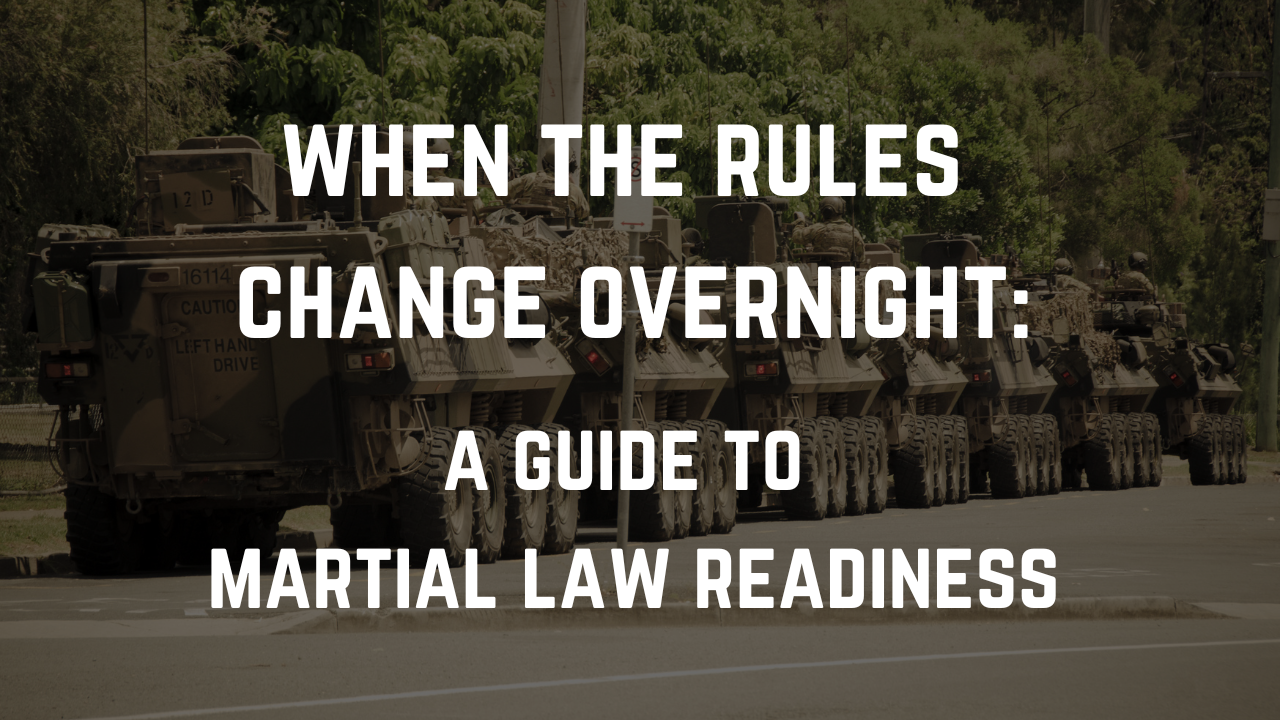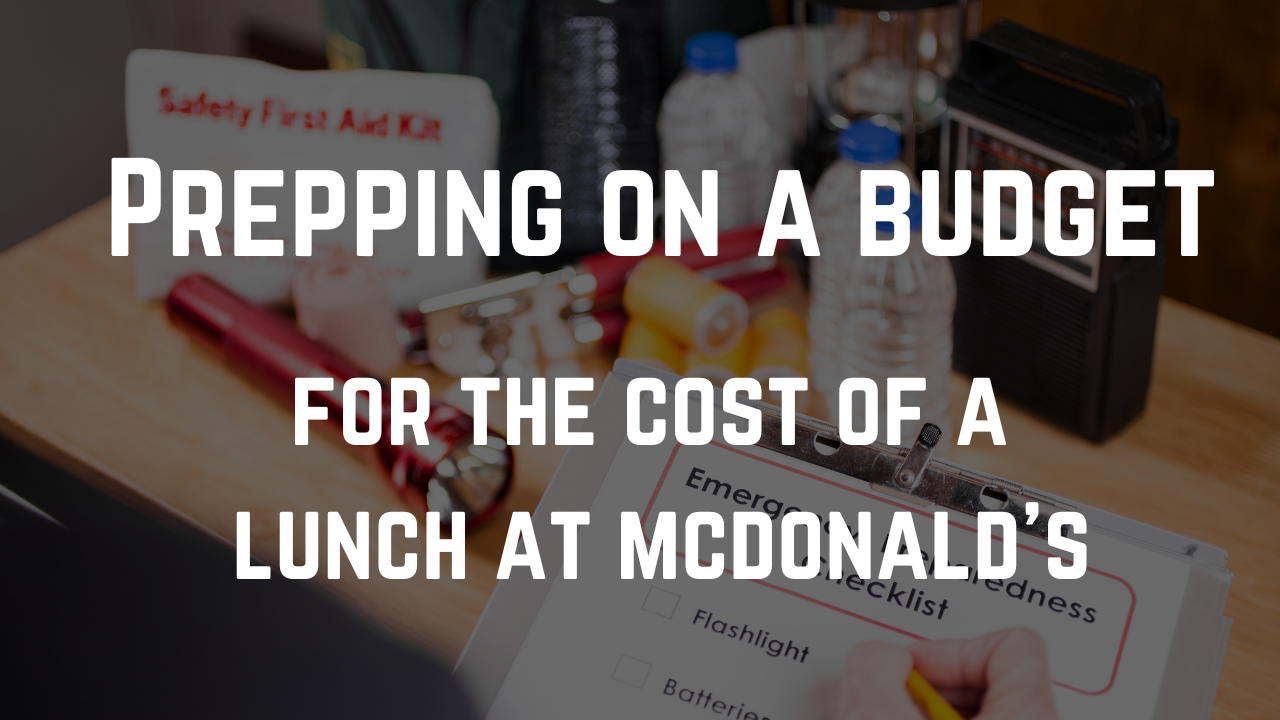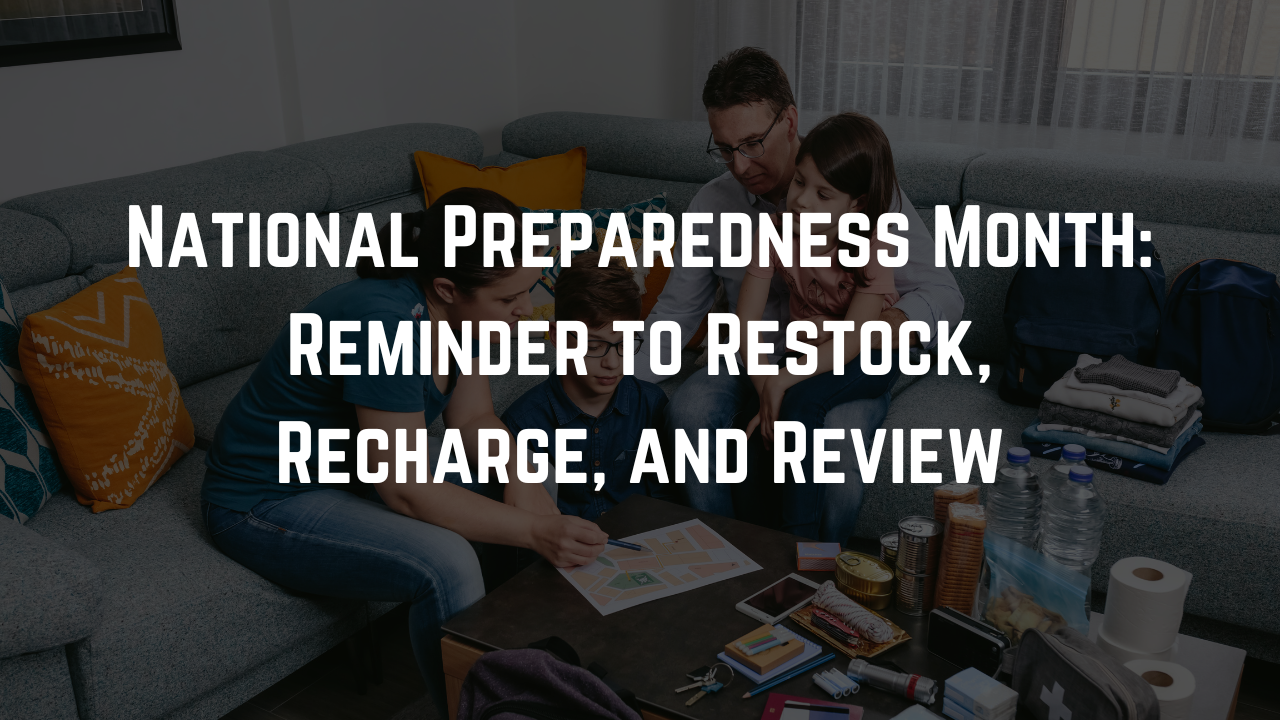.png/:/cr=t:0%25,l:0%25,w:100%25,h:100%25/rs=w:1280)
When most people hear the word “prepping,” they might think of extreme survivalists hoarding canned goods and building underground bunkers. The image of the “doomsday prepper” often conjures up notions of fear, paranoia, and the anticipation of a catastrophic event.
But this narrow view of preparedness overlooks the practical, everyday benefits of being ready for the unexpected.
In reality, prepping isn’t about preparing for the end of the world. It’s about preparing for life’s uncertainties. Whether it’s a power outage, a health emergency, or a sudden job loss, being prepared can reduce stress and help you navigate life’s curveballs with confidence.
Let’s break down why prepping is for everyone, not just the “doomsday crowd,” and explore the many practical reasons for being prepared:
1. Natural Disasters
Natural disasters like earthquakes, hurricanes, and wildfires are becoming increasingly common. Communities around the world are facing these types of events more frequently due to climate change and environmental shifts.
Preparedness in these situations doesn’t require stocking up on extreme amounts of survival gear. Instead, it’s about simple steps that can make a huge difference when disaster strikes: having an emergency kit with food, water, and first-aid supplies; knowing evacuation routes; and having a communication plan for your family.
The goal isn’t to live in constant fear of a disaster, but to be ready to respond if it happens. Readiness can mean the difference between chaos and calm during a crisis.
2. Financial Crises
Financial instability can hit anyone at any time. A sudden job loss, unexpected medical expenses, or an economic downturn can throw your financial plans into disarray. This is where preparedness really shines – not in hoarding money, but in creating a financial safety net.
Building an emergency savings fund, paying down debt, and planning for short-term expenses are all vital components of financial preparedness. These measures don’t require apocalyptic thinking, but they do provide a sense of security when life takes an unexpected turn.
For example, imagine losing your job and having enough savings to cover your bills for a few months while you look for new opportunities. Or, if you experience a medical emergency, having health insurance and a financial buffer can significantly reduce the stress of the situation.
3. Health Emergencies
No one likes to think about the possibility of illness or injury, but being prepared for these situations can help you feel more in control during tough times.
Having a basic understanding of first aid, knowing where your medications are stored, and keeping a stocked medicine cabinet are all practical steps that anyone can take. When illness or injury strikes, whether it’s something minor like a cold or something more serious like an accident, having these resources on hand can provide peace of mind and help you manage the situation.
In addition, having a health emergency plan in place (such as knowing where the nearest hospital or urgent care center is, or having a list of emergency contacts) can make a big difference in your ability to act quickly when every second counts.
4. Everyday Uncertainties
While it’s easy to focus on large-scale emergencies, the everyday challenges we face are just as important.
A simple preparedness plan can involve keeping extra batteries, flashlights, and non-perishable food in your home in case of a short-term power outage. Having a backup charging bank for your phone and a contact list for local service providers can save time and stress during moments of unexpected inconvenience.
Preparation isn’t just for the big, catastrophic events. It’s for handling the bumps in the road that we all experience regularly.
5. Preparedness = Peace of Mind
Ultimately, prepping is not about fear or hoarding – it’s about peace of mind. It’s about feeling secure in the knowledge that, regardless of what happens, you have the resources and plans in place to handle it. You can live with more peace of mind knowing that you’ve taken proactive steps to safeguard your well-being.
It’s about making smart, reasonable decisions today that will help you navigate any uncertainties tomorrow.
Readiness is for Everyone
Prepping isn’t about preparing for the end of the world, it’s about preparing for life’s uncertainties in a practical, realistic way.
By redefining prepping, we see that it’s not about living in fear, but about living with intention.
So, take a step today to start your preparedness journey. It’s about making small, thoughtful changes today to ensure that you can navigate tomorrow’s challenges with ease.


